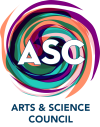2022 Candidate Questionnaire – Charlotte-Mecklenburg Schools Board of Education
Ahead of Election Day 2022, candidates running for election for the Charlotte-Mecklenburg Schools Board of Education were provided a five-question survey to complete and share their position on arts and culture. Below are the verbatim responses we received, grouped by question.
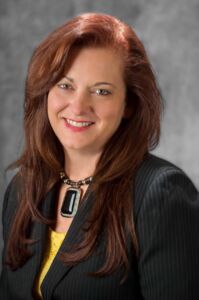
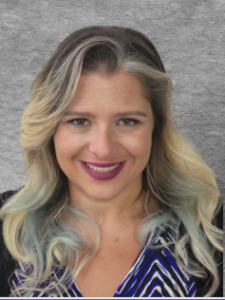
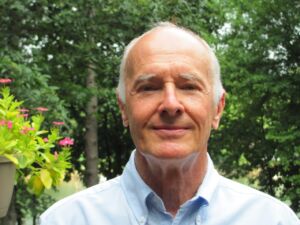
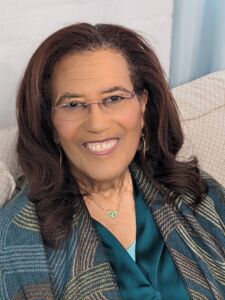

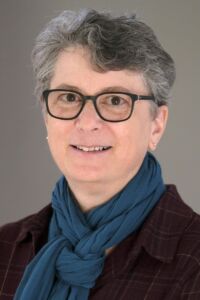
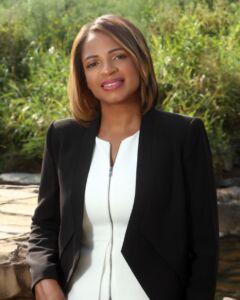
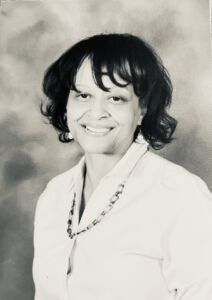
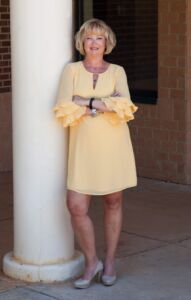
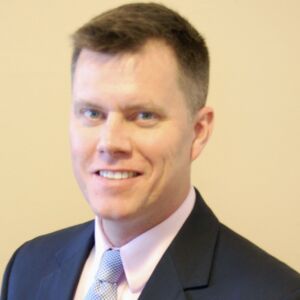
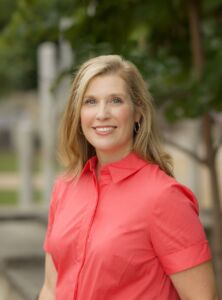
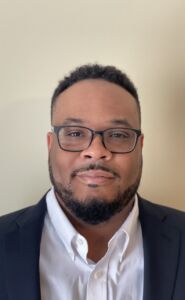
RHONDA CHEEK (District 1): Attending local concerts on the green in Davidson is such an amazing way to celebrate great music and spend time with friends and neighbors.
MELISSA EASLEY (District 1): I was a science teacher for the past 14 years. Science is in my everyday life. I scuba dive and have met an amazing community here in Charlotte as well as other states as well.
I also love the theater. I was very active in local theater throughout high school and college. which created wonderful connections that I still have all these years later.
BILL FOUNTAIN (District 1): I’ve been fascinated by all three since I was young. Having spent the last three years of my high school in Germany and England, I enjoyed the privilege of visiting museums, castles, and churches where art, science, and history merged. Science contributed to providing artists and architects with enhanced techniques of praising God. Today, I wonder if a single discipline has captured art, science, and history and aimed them at splitting our society into various secular camps.
THELMA BYERS-BAILEY (District 2): I encouraged my community to apply for a neighborhood matching grant to create a mural at the entrance of Northwest School of the Arts which is in our community. The grant provided for both community and student involvement but the display was created and directed by a local artist. Community leader’s names are part of the display and many were present at the closing celebration.
JUANRIQUE HALL (District 2): (Respondent skipped this question)
CAROL SAWYER (District 4): While I have had many experiences when the arts or history have helped connect me to my community but, I have been more profoundly impacted by arts experiences that connect me to communities outside of my own. I have connected with diverse Charlotte communities by participating in Tet celebrations in the Vietnamese community, Kite festivals at the Hindu temple, Charlotte Shout at the United House of Prayer, and Boom Echo events with immigrant neighbors at an apartment complex in east Charlotte.
STEPHANIE SNEED (District 4): ASC and it partners have been an integral part of my family and extended family for quite some time. The most significant is my daughter attending a film camp, funded in part by ASC, held by Charlotte Black Film Festival, where she had the opportunity to write and direct a mini film. This was a phenomenal experience for her! She also attended an ASC sponsored camp held by Arts + that she really enjoyed. As family we have attended numerous culture block arts, music and dance programs. Our favorite being one that highlighted traditional African drum circles!
CLARA KENNEDY WITHERSPOON (District 4): I am the founder and President of GPM Inc a nonprofit that uses the arts to support youth in developing team building skills. The ASC awarded our nonprofit with a small grant in 2002. We offered theatrical training to youth living in economically disadvantaged neighborhoods.
LISA CLINE (District 5): During the late 90’s, I was privileged to work on two middle school interdisciplinary lesson books that was supported by ASC. After the students completed the lessons, they attended plays from ASC to summarize the lessons. Many times as a 7th grade teacher, we took our students to the Mint Museum in conjunction with their African studies. Not only were the students exposed to rare African artifacts, but many of them were able to go to a museum for the first time in their lives. When we afforded the opportunity to take our students to plays, they were able to see interpretations of the books they had read. ASC is very important as a way to enrich our students’ lives.
TRENT MERCHANT (District 5): Before returning to Charlotte in August 2005 and joining the School Board exactly 1 year later, I was an actor in Atlanta. Most of my work was on stage – Shakespeare and a lot of new work / avant garde stuff (Murray Mednick, Naomi Wallace, etc). Almost all of it was designed to challenge audiences, and all of it engaged audiences – we ALWAYS broke the 4th wall, and often the work was so disruptive that we held talkbacks after the shows to help audiences process and recover.
When 9/11 happened, I was playing what may be best described as a war-mongering time traveler in “In the Heart of America” by Naomi Wallace. At various points in the show I was Rusty Calley in the My Lai Massacre, a brutal drill sergeant training new recruits to go to war in the first Gulf War, etc. It was fascinating to see the different reactions to my character. Some audience members laughed and cheered me during the performance. Others gasped. One audibly cursed me. Many told me how much they hated my character in the talkbacks. It was an illuminating window into where the country was at the time – the confusion, the fear, and the beginnings of serious division.
We also premiered new work by Murray Mednick over several years. It never quite caught on in Atlanta. My wife was doing sold out shows of Company, while my theatre was doing new work for tiny audiences. Then we took the shows to Munich in Summer 2003 and they were a smash hit. We performed for standing room audiences, were on the front page of arts sections, and were hailed for producing bold and relevant work. Audience members could not believe that I had two jobs – actor and high school teacher. It was a fascinating introduction to the way that different cultures value the arts.
I could write about this or talk about it for hours, but these are just a few glimpses. My actor training helped me to be an effective communicator when I was an at-large member of the school board from 2006–2011. I returned to the stage in 2019 in Charlotte for the first time in 15 years, and it was the first time my children got to see me perform… I also have an MA in US History that informs my perspective on the culture wars that infect our dialogue in public schools…
SUMMER NUNN (District 6): I served on Caroline Calouche + Co as a board member for over 4 years helping her transform her show schedule to include kid and sensory-friendly version’s for Clara’s Trip during the Holiday Season as well as weather the pandemic to keep dance going in our community
MICHAEL WATSON (District 6): The arts are a critical component of the community and as such as helped me connect to different cultural elements of communities in the past. I have attended several ethic themed festivals in an effort to not only understand my community but enrich my own cultural understanding.
As the community’s Local Arts Agency, ASC’s focus is to serve all residents of Mecklenburg County, the city of Charlotte and the six suburban towns, by investing in high-quality cultural programming that is diverse, relevant, resident-informed, and available to all. We intentionally center community, start with partnership (create with, not for), and advocate for equitable distribution of government funds.
What are your arts and culture priorities, and how do you intend to promote or pursue those priorities if elected? (For example: advocate for increased investment, attend cultural events or Culture Blocks programs, volunteer to sit on a grant review panel, or connect with your appointees to ASC’s geographic Advisory Councils)
RHONDA CHEEK (District 1): I have been close with my appointee on the advidory board, unfortunately she rotated off. I am thrilled to have the Cain Art Center coming to north Mecklenburg.
MELISSA EASLEY (District 1): Art and culture so important not only to the students that participate, but to the community as well. On school board I will make sure that our Art and Culture community is not only active but thriving. I do and will continue to attend culture events at the various schools around the county.
BILL FOUNTAIN (District 1): If elected to the CMS board of education, I’d focus on ways to improve student learning and behavior. The arts can help in this by promoting virtues and self-esteem. I often heard of wholesome movies are making good money. I’d love to promote this kind of literature, sculpture, plays, or other medium.
THELMA BYERS-BAILEY (District 2): I attend cultural events and encourage my community to participate in opportunities to create local art works. I have also endorsed local business efforts to create art as part of their business edifice and I connect with my appointees.
JUANRIQUE HALL (District 2): As an advocate for diverse programming within our community, I would volunteer to create community unification panels to develop safe spaces for creatives and housing opportunities for low income residents.
CAROL SAWYER (District 4): I believe that cultural arts enrich communities. I regularly take advantage of arts and culture events supported by ASC. I fully support the Culture Blocks program because they provide meaningful access to communities that otherwise might lack access.
I would be honored to serve on a grant review panel.
STEPHANIE SNEED (District 4): All children, adults and families should be educated, informed and have the opportunity to participate in DIVERSE arts and cultural programming. I intend to promote the importance of this and ensuring equity of arts and culture in our communities. More importantly, one of my goals as a school board member is to ensure CMS/board has increased collaboration with community stakeholders. I intend to advocate for expanded collaboration opportunities with ASC and its partners.
Further, I would be honored to dedicate time to serving on a review panel or as a volunteer for programs.
More importantly, my family will continue to participate in ASC and its partners programs. My kids are already looking for to film camp next summer.
CLARA KENNEDY WITHERSPOON (District 4): Research has shown that the arts reduce stress. I will be a strong advocate for the arts in schools and especially our lower performing schools.
LISA CLINE (District 5): I would like to see more opportunities for our students to attend plays or musicals as part of the learning process. As a member of the BOE, I would encourage more partnerships with ASC to create Interdisciplinary lessons for Elementary and Middle School Students. I would volunteer to sit on any panel to review the curriculum presented and sit on an Advisory Council.
TRENT MERCHANT (District 5): ASC needs to define its mission in a crystal clear fashion, then absolutely go for it. I think you have been caught trying to please too many masters – past and present, and your success has led to mission creep that raised expectations, while diluting your ability to deliver.
I am grateful that Charlotte has had spaces like the Duke Energy Theater for emerging artists to produce their work. I hope that ASC can be a group that continues to support new work and help incubate emerging artists. Charlotte is a city that likes to pick winners. ASC does not need to double down on that effort. 15 years ago I was telling Michael Marsicano, Lee Keesler, and others that they should let the Blumenthal be the Blumenthal, and that ASC should be building the next great thing rather than riding the coattails of the current great thing. I did not win those arguments. Neither did you…
I see a vibrant visual arts and music scene in Charlotte, and I am a consumer of both. There is very little going on in terms of great dance besides Charlotte Ballet, but Moving Poets, Movement Migration, etc keep doing cool stuff under the radar from time to time to time. There is nothing going on in terms of theater besides truck and bus and community theater. There should be a space in between, and I would be a fierce advocate in promoting that, because that’s the space I inhabited in Atlanta. We have to accept that, at least for a while, the best talent will move on to have families or go to New York, London, & Los Angeles. There’s nothing wrong with that. We are not going to be a second Broadway. But we can be a city that gives birth to talent and new work before sending it on its way. Frankly, those are the shows that deliver the greatest impact with school-age audiences. The work is accessible and exciting. The talent is accessible. The performances are affordable. They inspire audiences.
SUMMER NUNN (District 6): Increased investment for arts as well as expansion of high school and middle school level programs through partnerships with higher learning and additional career paths.
MICHAEL WATSON (District 6): My cultural priorities are increased opportunity for cultural expression via festivals and exhibitions, promotion of the arts in schools vs reducing budgets for the arts which has been a trend nationwide. I would love to sit on a panel that reviews grants or appointees.
Community Ties: Understanding What Attaches People to the Place Where They Live, an in-depth study published by the Knight Foundation and Urban Institute in May 2020, reports that a community’s residents’ access to arts and culture not only boosts feelings of satisfaction and lifestyle fit, but also correlates with greater investment of time and resources in that community. This investment metric includes participation in local activities, attending public meetings, owning a home or local business, donating, and volunteering.
Easy access to arts and cultural activities is reported by people in low-income households less frequently (67%) than by those in high-income households (78%). Additionally, only 64% of Black residents and 66% of Hispanic residents report easy access to arts and culture, compared to 74% of white residents and other racial and ethnic groups. In the Charlotte-Mecklenburg metropolitan area, arts and cultural activities are perceived as the fourth most difficult quality feature to access in our community, after affordable housing, transit options, and job opportunities.
ASC recognizes that systemic, inequitable access to opportunity has led to generations of unjust outcomes for those who have been historically marginalized in mainstream arts and cultural funding, discourse, leadership and resource allocation. We strongly encourage all who serve or seek to serve our community to read ASC’s inaugural Cultural Equity Report, which reflects the steps – and missteps – we have taken on our journey to becoming a more equitable organization and holding ourselves accountable to the community.
How will you join ASC in actively addressing inequities in access to arts and culture?
RHONDA CHEEK (District 1): One big project, the Cain Art Center in Cornelius will allow lower income families in northern Mecklenburg to have access to arts. I have been involved in this project and highly support. I am especially excited about the partnerships with local schools.
MELISSA EASLEY (District 1): The frist thing we need to do is bring awareness of the Arts into our schools. Many of our low income households are not exposed to much art, science and culture. Using are schools as a avenue to bring the arts and culture to our families is something I have always encouraged and will continue to do as a policy maker on the board.
BILL FOUNTAIN (District 1): One powerful way to test your assertion of inequities is observing the celebration of Our Lady of Guadalupe, which brings together Hispanics, whites, and some blacks. It’s culture on parade.
THELMA BYERS-BAILEY (District 2): I am constantly looking for ways to bring art to my community as well as making them aware of opportunities to enjoy artistic displays. For instance, Northwest School of the Arts wanted my community to come to their various performances in their new Auditorium but had no visible way to communicate these opportunities, I pressed CMS to provide the school with a digital marque in front of the school so my community could drive by and see the latest opportunities.
JUANRIQUE HALL (District 2): In order to address inequities in arts and culture, I would work towards developing marketing and community awareness events to promote arts and culture educational and funding opportunities within our community.
CAROL SAWYER (District 4): I have read the Cultural Equity Report and admire bold actions it has precipitated.
As a CMS Board member, I support ASC partnerships with our schools, especially those traditionally lacking access to arts and culture activities. In this partnership, CMS can help directly connect underserved populations with arts and culture. I have been pleased to serve as a chaperone on a recent field trip to Charlotte Children’s Theatre with CMS’s Charlotte East Language Academy.
STEPHANIE SNEED (District 4): There must be the will and intentional actions to end systemic barriers in arts, culture and education. The first step is to acknowledge and educate families and the community that these systemic barriers exist in arts, culture and education. There then must be specific actions to end systemic barriers through intentional goals pertaining to funding, policies and programming. There also should be further exploration regarding collaborative efforts of CMS and ACS to end systemic inequities.
CLARA KENNEDY WITHERSPOON (District 4): During board meetings I will advocate for the arts in schools. Along with presenting research to support the positive affect of arts upon social emotional development.
LISA CLINE (District 5): I would encourage and prioritize ASC activities in schools that have a majority of low-income households and minority families. Using the school as a culture center will allow easier access for those families.
TRENT MERCHANT (District 5): The independent visual art scene in Charlotte is organically diverse and intentionally inclusive. I support that scene by buying work, attending shows and open studios nights, and promoting the work on Instagram. I don’t see a lot of ASC people around…
The best theater in that middle space between truck and bus and community theater is being produced by black artists. You should be supporting them.
Communities who have traditionally been excluded from the arts and culture scene are not going to show up simply because they are invited or because they are subsidized in some way. The work has to be meaningful and relevant. The stakes have to be raised. For example, Black and Latino audiences are not going to support white stories with alternative casting. Go find Black and Latino stories. Pay those writers. Hire BIPOC local producers. Find BIPOC talent. It’s about hitting the street, getting out in the community, and having the courage on your own to decide what is good, regardless of what the shiny shoes folks think.
I guess the bottom line is that people know what is good and what sucks. You can’t market repackaged garbage to Black and Latino communities. It takes authenticity and humility. Support good work and people will come.
SUMMER NUNN (District 6): Work to make sure Title 1 schools have increased funding for arts programs. Work with community-based art programs to work with schools to provide free access and exposure. Create a group to focus on culturally relevant arts in the classroom.
MICHAEL WATSON (District 6): I believe it is imperative that opportunities to exist and we have to be creative on how to solve for those inequities. One of my campaign positions is that we have to aggressively seek partnership with not only our community organizations but our business partners to help bridge the inequity gap.
Charlotte-Mecklenburg is one of seven NC school districts to date to adopt the Arts ARE Education Proclamation, which includes recognition that “arts education supports the social and emotional well-being of students and fosters a more positive, safer school environment;” “arts education experiences help students understand their own cultural roots and appreciate others’ cultural roots and traditions;” “arts education is a key to re-igniting students’ learning in a post-COVID-19 world;” and that “arts education is a part of the well-rounded education for every student as outlined in the Every Student Succeeds Act and in state law.” The proclamation documents Charlotte-Mecklenburg Schools’ commitment to “maintain and grow arts education programs in the 2021-2022 school year and beyond.”
What do you see as the role of a School Board member in ensuring that CMS students have continued, meaningful, and equitable access to arts education and cultural enrichment?
RHONDA CHEEK (District 1): As a board member, I can encourage this and also ask how we are tying our academic programs to the arts.
MELISSA EASLEY (District 1): The role of a School Board member is to create policy that reflects the values of the community. Art education is a value of this community. Making sure that Arts are not taken away due to funding issues, making sure that policy aligns to give meaningful, equitable access to arts and culture education.
BILL FOUNTAIN (District 1): As I mentioned earlier, arts education focused on promoting virtues and self-esteem is a program I’d endorse and promote.
THELMA BYERS-BAILEY (District 2): My role as a School Board member is to let our students know how much I appreciate their efforts by attending as many school performances as I am able and displaying my enthusiastic appreciation of a job well done. I try to attend every event to which I am invited and have been rewarded with some memorable experiences, such as meeting Wynton Marsalis after watching him teach a class at West Meck HS. I then comment about these experiences at the dais during school board meetings. I have enjoyed a multi-cultural event at Hawthorne Academy of Health Sciences, numerous plays at the University Park Creative Arts Academy and many other cultural and artistic presentations at a variety of schools throughout CMS.
JUANRIQUE HALL (District 2): As a School Board member, I will accept the responsibility of accountability to assure that All students have access to arts education and cultural enrichment by; participating in the develop of diverse programming and advocating for equitable access to funding for all students.
CAROL SAWYER (District 4): The CMS Board recently adopted targeted Goals for student achievement that address the vision of the Board and community. While these goals are crucial, the Board also adopted Guardrails that reflect our values. One of the Guardrails specifically addresses the concern that education in the arts might be neglected in pursuit of academic achievement in reading, math, science, and social studies. This Guardrail reads: The superintendent will not deprive students of access to course offerings that are rich, diverse, and rigorous.
One of the metrics used to assess adherence to this Guardrail specifically addresses arts education as follows: Percent of students in grades 6-12 participating – taking one or more – Visual or Performing Arts course will increase from 77.6% in middle school and 38.2% in high school in June 2020 to 80% in middle school and 40% in high school in June 2024.
Annual Targets: [SY22-23: 80% (MS) and 40% (HS) SY23-24: 80% (MS) and 40% (HS)]
STEPHANIE SNEED (District 4): As a board member, I must ensure policies such as this are executed with action items! It is imperative that the Board makes it a priority with for the Superintendent to ensure that there are increased opportunities for equitable arts education and cultural enrichment through class instruction and programs as well as outside of school hours through community programs.
CLARA KENNEDY WITHERSPOON (District 4): The school board role is to build collaborative relationships with community partners such as ASC and other organizations that offer cultural enrichment to students.
LISA CLINE (District 5): As a Board member, I would encourage more arts-based lessons to enrich students in elementary and middle school so that by the time they are in high school, they can continue to select courses independently. For those students who cannot afford musical instruments, I would advocate for additional monies to provide them to students.
TRENT MERCHANT (District 5): Arts and humanities provide avenues for building relationships, developing empathy, and understanding different cultures and different points of view. I see that as foundational, not as an add-on. I was an actor and a high school theatre director. My oldest child is in art school at SCAD. My youngest is interested in design.
Further, children learn through their play, not through rote instruction, and the arts are an avenue for such play, especially in a culture obsessed with athletics that often overlooks everything else. I am committed…
SUMMER NUNN (District 6): The role of the board to is make sure we have the right leadership, funding, and policies in place. We need to ensure we have a leader who understands the importance of art, funding to provide programs in schools and policies that ensure all are getting equitable access.
MICHAEL WATSON (District 6): As a Board Member we have to have meaningful monitoring of goals like this to ensure the outcomes are fulfilling the commitment. We then have to address the metrics to support that goal. I would ensure that we are making meaningful measured progress.
The Arts & Science Council’s School Funding Opportunities ensure that PreK-12 students in public, charter, and independent schools across Charlotte-Mecklenburg have access to professional artists, scientists, historians and other cultural providers for curriculum-aligned programming (curriculum-based residencies, workshops, day trips, assemblies/performances, out of school experiences and/or professional development for teachers). ASC also maintains an Education Provider Directory, which allows schools to search Arts, Science, History, and Heritage education programs available for booking in Mecklenburg County, all of which adhere to the Common Core State Standards and the North Carolina Essential Standards.
If elected, how will you actively utilize or amplify the resources and collaborative partner of ASC to support student outcomes and realize your goals for the CMS School Board?
RHONDA CHEEK (District 1): Combing academics with the arts makes the academics come to life for many students. I will continue to advocate for integration of the arts into our curricula.
MELISSA EASLEY (District 1): I think this is an amazing resource, that I was unaware of. This is one of the basics my campaigns. Bringing the community into our schools to give all our students opportunities to experience art, science and culture.
In the classroom, I took advantage of something similar with my student in “Adopt a scientist” We had two meteorologists, Zoom into our classroom to talk about different weather patters, options and a career in sciences. It was a wonderful experience and I look to bring more connections like that using this directory to bring art and culture more into CMS.
BILL FOUNTAIN (District 1): I’d continue as I did as a high school teacher supporting field trips to museums, historical sites, and businesses where vocational minded students can find interest.
THELMA BYERS-BAILEY (District 2): I believe my previous responses demonstrate my commitment to support the artistic endeavors of CMS students and I certainly intend to continue to do so. Whenever I am made aware of opportunities where CMS can utilize the ASC resources to further our student’s cultural experience, I will certainly encourage that as well.
JUANRIQUE HALL (District 2): If elected, I would utilize these resources for strategic planning to develop research based measuring tools to support and monitor student outcomes.
CAROL SAWYER (District 4): I will be pleased to amplify the many offerings in the Education Provider Directory to teachers and principals in CMS. It would be most helpful to have information on which CMS schools have taken advantage of ASC offerings. That way we can identify what barriers are preventing others from taking full advantage of the opportunities. Once we have identified the barriers, we can work to overcome them so that as many students as possible benefit from ASC offerings.
STEPHANIE SNEED (District 4): It is a top priority of mine for there to be expanded partnerships with community partners. These partnerships are necessary to support our students and families within and outside of school. These partnerships translate to increased learning opportunities. Students are enriched from having a well-rounded education that incorporates arts and culture.
CLARA KENNEDY WITHERSPOON (District 4): By sharing ASC collaborative partners marketing materials to inform and involve the families of CMS students.
LISA CLINE (District 5): I would encourage each grade level to require one ASC opportunity each year to expose students to a cultural event.
TRENT MERCHANT (District 5): I don’t know. Honestly I think that ASC needs to get its act together. And CMS has huge challenges – partnership with ASC may not be a Top 10 priority. And I say that out of love not out of criticism. I think your path of being an alternate education source is misguided. I love the partnerships, but the value of the partnerships are that you promote great art, not that you promote education. I feel like that message has been delivered repeatedly from elected bodies and the community… I don’t feel like I’m the first one to say that.
I hope what you hear from me and from my very revealing and thorough answers is that you have a potentially strong partner in me, as opposed to my opponent. Seriously, how many other people running for local office made their living as a struggling actor? How many met their wife in a musical? How many were high school theater directors and acting teachers? How many performed as recently as three years ago on a stage in Charlotte? And Charlotte squawks does not count… How many go hang out with Baryshnikov at the Baryshnikov Theater when their friends perform there? Just trying to be honest here…
SUMMER NUNN (District 6): We should ensure that all school leadership understands that it is available and have a session to focus on ensuring we are all using it properly to benefit children across our county.
MICHAEL WATSON (District 6): If elected I would propose that the Board make this partnership and the fulfillment of its charter a priority for our Superintendent. The Superintendent would need to ensure its execution and we can prioritize the monitoring based on his/her actions.
The following candidates did not have campaign contact information available via the Board of Elections or were unable to be reached at the phone number or email address provided:
Hamani R. Fisher (District 1)
Ro Lawsin (District 1)
Monty Witherspoon (District 2)
Gregory (Dee) Rankin (District 3)
Steven Rushing (District 3)
Sean Strain (District 6)
